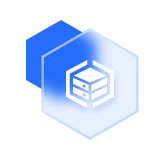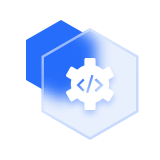Industry Pain Points

Mismatch between Flexible Market Demand and Traditional Supply Chain Systems
Agricultural enterprises offer diversified product categories, each with unique requirements for production, transportation, warehousing, and sales environments. Traditional supply chain structures are cumbersome and unable to accommodate flexible service changes at the sales end.

Inability to Monitor Production Environments and Difficulty in Applying Historical Experience
Difficulties in IoT data collection make it impossible to monitor data during production/cultivation and sales processes. This hinders the transformation of historical data and experience into methodologies to guide production.

Low Level of Informatization
Difficulties in IoT data collection prevent data monitoring during production/cultivation and sales processes, impeding the transformation of historical data and experience into methodologies to guide production. (Note: This point is somewhat redundant with the previous one; consider merging or emphasizing different aspects if needed.)

Challenges in Food Safety Management and Control
Agricultural products involve consumer safety issues, necessitating full-process traceability from production to sales, strict regulatory and management systems, and comprehensive monitoring of execution throughout the entire process.
Business Objectives
Solution Architecture
Customer Value

Digitalization Capacity Building for Internal Operations
Through the construction of a big data platform, we will gradually establish an integrated full-supply chain system and a centralized warehouse, supply, and distribution system. This will complete the foundational setup for our enterprise's digitalization capabilities, establishing abilities for unified data storage, data aggregation, data processing, unified management of data assets, data operational analysis, and data sharing services. These will provide foundational support for business digitalization.

Data-Driven Innovation in Business Models
By leveraging the big data platform to form a one-stop data collection center, we will build standardized full linkages for production, processing, and distribution. This will enable online-offline integration, precise matching of supply and demand, order consolidation, demand integration, precise services, and collaborative distribution. It will serve the incubation and transformation towards smarter and more modern business models.

Traceability in Food Safety Processes
By collecting data from the IoT platform through the big data platform, we will connect the entire process of agricultural product production, processing, environment, logistics, and O2O marketing. This will realize digital monitoring of the entire product lifecycle from production to sales, enabling corporate regulation and auditing, consumer traceability inquiries, and repeat purchases.

Real-Time Monitoring of Product Production Environment
Through real-time data collection, modeling, and analysis of production environment data, we can achieve regulation of product production/growth status, tracking and supervision of production/planting execution plans, and provide environmental guidance for production/planting based on historical data analysis.
Build Your AI-Native Data & AI Platform with KeenData